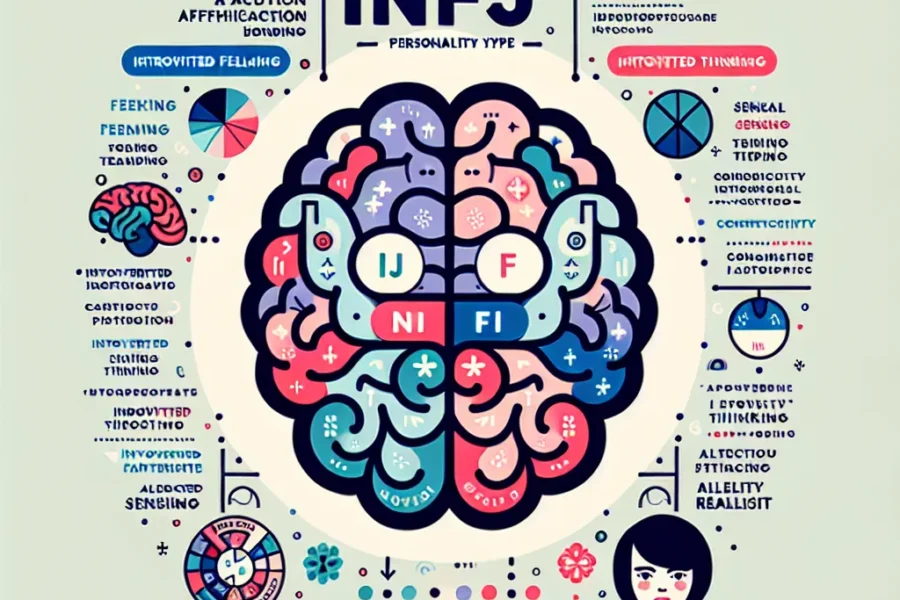Understanding the INFP Personality Type: Insights and Characteristics
The INFP personality type, one of the sixteen personalities outlined by the Myers-Briggs Type Indicator (MBTI), is often described as an idealist or mediator. This personality type is characterized by an inner focus on personal values, deep empathy, and a creative mindset. In this comprehensive exploration, we’ll dive into the nuanced world of the INFP, offering insights into their behaviors, motivations, strengths, and challenges.
**Innate Idealism and Values**
At the heart of every INFP is a core set of values and principles that guide their decisions and actions. This internal moral compass is a defining feature of their personality, influencing everything from their career choices to their relationships. INFPs are often drawn to causes that align with their ideals and may work tirelessly to champion social justice, environmental preservation, or humanitarian efforts.
The idealism of INFPs can inspire those around them, as they strive to make the world a better place. However, it can also lead to disappointment when reality fails to meet their high expectations. Understanding and balancing their idealism with practical considerations is a key growth area for INFPs.
**Empathy and Emotional Depth**
INFPs possess a profound capacity for empathy, allowing them to connect with others on a deep emotional level. This sensitivity enables them to understand and share the feelings of those around them, often leading to strong, supportive relationships. Their instinctive ability to act as confidants and advisors is one of their most treasured traits.
Sometimes, the depth of their emotion can be overwhelming, and INFPs may find themselves absorbing the stress and pain of others. Establishing boundaries and learning to manage their own emotional well-being is vital in ensuring they don’t become emotionally drained.
**Creative Imagination**
A hallmark of the INFP personality is a rich and vibrant imagination. INFPs are often creative individuals, gravitating toward artistic pursuits such as writing, music, and visual arts. This creativity isn’t limited to the arts; they are also innovative problem solvers, able to think outside the box and consider a myriad of possibilities.
The downside to their vivid imagination is that it can sometimes result in procrastination or a struggle to turn their many ideas into reality. For INFPs, finding a balance between dreaming and doing is crucial to realizing their potential.
**Seeking Authenticity**
Authenticity is of paramount importance to INFPs. They crave genuine connections and are often on a quest for self-discovery. In their personal and professional lives, they seek out roles and relationships that allow them to be true to themselves. To an INFP, a life lacking in authenticity is deeply unsatisfying.
Their quest for authenticity sometimes leads INFPs to withdraw from situations where they feel they cannot be themselves. Encouraging an environment of acceptance and understanding is essential for their growth.
**Introverted Yet Passionate Communicators**
Though introverted by nature, INFPs express themselves with passion and conviction, particularly when discussing topics tied to their values. They prefer one-on-one conversations or small groups where they can engage more meaningfully. Writing is another outlet where INFPs often excel, as it allows them to carefully craft their thoughts and share their inner world.
Communication challenges may arise when INFPs encounter conflict or criticism, as they may take negative feedback personally. Developing resilience and learning to objectively assess constructive criticism can help them adapt effectively.
**Flexibility and Adaptability**
INFPs are known for their flexibility and open-mindedness. They tend to be adaptable, capable of adjusting to new situations with ease. This is partly due to their perceiving trait, which makes them more inclined to go with the flow rather than stick to rigid plans.
However, their adaptability can sometimes lead to indecisiveness, as they may see endless possibilities and struggle to choose a path. Setting clear goals and deadlines can help INFPs harness their adaptability while staying on track.
**Seekers of Harmony**
Peace and harmony are significant to INFPs, and they strive to create an environment free from tension and discord. They have a talent for mediating conflicts and helping others find common ground. Their gentle and diplomatic approach can be a powerful force for unity in their communities and relationships.
INFPs must be cautious, though, not to sacrifice their own needs in the process of peacemaking. Learning to voice their concerns and assert themselves appropriately is an important skill for maintaining personal harmony.
**Challenges and Growth Areas**
While INFPs possess many admirable qualities, they face challenges like all personality types. Their strong emotions can sometimes hinder objectivity, making decisions difficult. Procrastination and a tendency to avoid confrontation can also be obstacles to personal growth.
To address these issues, INFPs can work on developing practical planning skills, setting attainable goals, and practicing assertiveness. Engaging in mindfulness and stress-management techniques can help them maintain emotional equilibrium, ensuring that their empathy remains a strength rather than a vulnerability.
**Conclusion – Embracing the INFP Journey**
The INFP personality is a fascinating blend of idealism, creativity, and empathy. By acknowledging their strengths and confronting their challenges head-on, INFPs can harness their unique gifts and make a meaningful impact in the world.
Understanding the complexities of the INFP personality type provides valuable insights into how they navigate life and interact with others. Whether you’re an INFP seeking self-awareness or someone wishing to connect with an INFP in your life, this knowledge can be a powerful tool for fostering deeper understanding and appreciation of this rare and imaginative personality type. Through this exploration, we can celebrate the qualities that make INFPs unique and encourage their continued growth and contribution to the rich tapestry of human diversity.



Leave a Comment